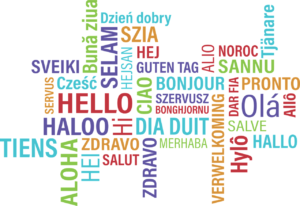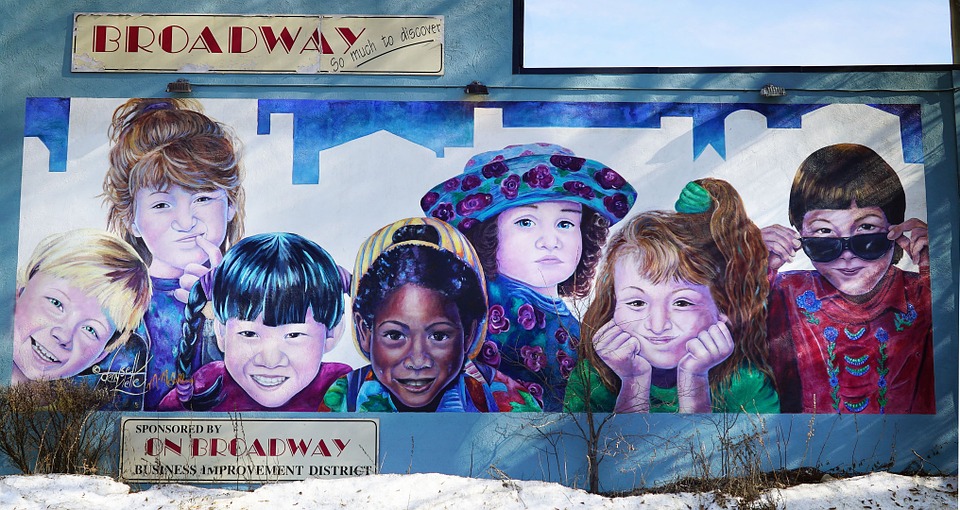Learning and knowing a foreign language
Knowing a foreign language has become a must and advantageous while looking for certain jobs. It is almost a prerequisite for international business in the global world. We even see that bilingual applicants can be preferred in job postings.
 Because of that, many people attend language courses, use apps or dive into the world of foreign movies and series. They try many different ways to get better in that language in native fluency. For these people who spend years to learn a foreign language, there is a group of ” born lucky” people: ”Bilingual ” individuals who grow up in different countries. It is, of course, a great chance to grow up bilingual. Every language is another world and carries the culture of a community in itself.
Because of that, many people attend language courses, use apps or dive into the world of foreign movies and series. They try many different ways to get better in that language in native fluency. For these people who spend years to learn a foreign language, there is a group of ” born lucky” people: ”Bilingual ” individuals who grow up in different countries. It is, of course, a great chance to grow up bilingual. Every language is another world and carries the culture of a community in itself.
Is everyone who grows up in a different country ”bilingual”?
People usually think about those who born and raise in different countries as They acquire both languages naturally and they speak and understand both of them very well. Well, is it always true? Actually not. The language which is spoken around the child and the way it is spoken affects the child in the acquisition of the language since he/ she communicates with the close circle until a certain age.
For instance, let’s think about a child who was born in France and whose family of Turkish origin living in France. Both of the parents might communicate with the child only in Turkish. If we assume that no french tv channels are watched and no french-speaking guests stop by in this house, then it will be late for this child to be exposed to French. Also if he doesn’t go to the nursery, he will only start to speak French outside of home at the school age. It may be wrong to identify this child as a ” bilingual”. Even though the child was born in France, his mother tongue is Turkish. He later becomes a bilingual which is called ” diachronic bilingualism”.
Let’s change our example and think about a child who was born in France and whose family of Turkish origin living in France. This time, let’s imagine that one of the parents speak only in Turkish and the other one only in French since birth. If the mother continues to speak in Turkish and the father in French, the child will learn how to differentiate the languages and use them effectively. He will acquire both of the languages naturally and after a while learn who will he speak in Turkish and in French. He will become conditioned without realizing and switch between the languages. He will answer in Turkish to his mother and in French to his father. This is called ” simultaneous bilingual acquisition”.
 Then is it this simple? Yes and no. It will be simple if the parents know the language they are speaking to the child in native fluency and don’t need another language to communicate.
Then is it this simple? Yes and no. It will be simple if the parents know the language they are speaking to the child in native fluency and don’t need another language to communicate.
Starting a day with ”Günaydın yavrum.” and continuing with ”Ça va?”
If a parent doesn’t have full command of the language he/she communicates in and changes languages, the situation turns into something else. This need for switching between languages usually happens in emotional topics. Let’s explain it with an example again. Imagine a mother whose native language is not French but speaks with her child in French. She wants to show her affection to her child with expressions like ” yavrum, kuzum, kurban olayım, oy yerim seni ‘’ but couldn’t find a French equivalent to these. These moments are especially hard for the parents.
The child’s progress to be a bilingual individual can get complicated at this point. The child wakes up to his mother’s ” Günaydın yavrum !” . Then she/he may want to respond in Turkish “Ça va?“ He may even answer by using both languages together and say ” Ça va iyi ”. This is the situation which experts call ” inconvenient” with children growing up with two languages. It is important to talk to the child in a consistent language. But it isn’t something to worry about. Of course, the child will differentiate the languages when one starts to spend time outside and go to school.
So, do we really need all of these?
 Of course, we do. It would be too much of a loss to think otherwise. Even the child is born outside of her parents’ native culture, we would be keeping the child away from living in a richer world if we ignore a language that has the memories and culture of a community, and the things that happened even before the child was born. Let him acquire and embrace both languages and culture Why would he need to ignore one language while acquiring another? Let the child live through both languages, listen to pieces of advice from both of them. When deciding about something, let him look through the window of a language and from the other ones. What a great chance!
Of course, we do. It would be too much of a loss to think otherwise. Even the child is born outside of her parents’ native culture, we would be keeping the child away from living in a richer world if we ignore a language that has the memories and culture of a community, and the things that happened even before the child was born. Let him acquire and embrace both languages and culture Why would he need to ignore one language while acquiring another? Let the child live through both languages, listen to pieces of advice from both of them. When deciding about something, let him look through the window of a language and from the other ones. What a great chance!
Scientific studies agree with this idea too. ” Simultaneous bilingual acquisition ” doesn’t force the child intellectually or cognitively in any way. On the contrary, children who grow up in an environment where bilingualism is accepted and supported, are more supported in terms of mental and cognitive development.
Translated by: Esra Nur Elmas
Check this Tedx video about Dr. Naja Ferjan Ramirez if you want further info about this topic:
https://www.youtube.com/watch?v=Bp2Fvkt-TRM
For those who are learning Turkish we recommend you to read the article again by comparing the Turkish one to improve your Turkish!

